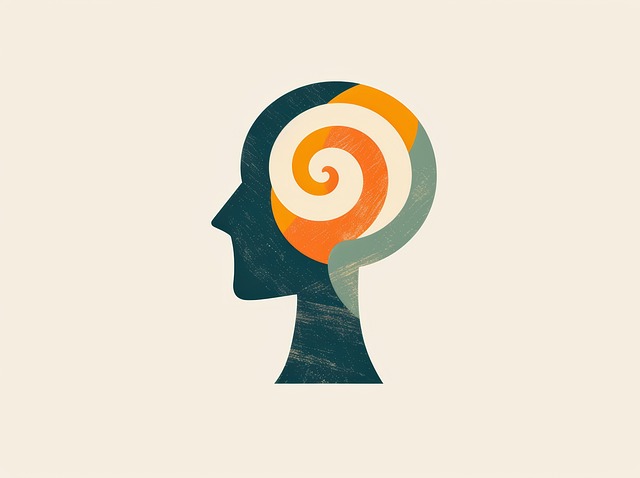Highlands Ranch Sexual Abuse Survivor Therapy (HRSAST) prioritizes mood regulation as a cornerstone of healing, addressing biological, psychological, and environmental factors. Using cognitive techniques, survivors challenge negative thought patterns for emotional recovery and improved stress reduction. Mindfulness and relaxation exercises empower them to detach from traumatic memories and build resilient coping skills through tailored self-care practices. This holistic approach, including resources like the Mental Wellness Podcast Series, fosters mental wellness and resilience for survivors' ongoing support and personal growth.
In the journey towards healing, particularly for those who have experienced sexual abuse in Highlands Ranch, effective mood regulation strategies are essential tools. This article delves into a comprehensive guide for survivors, offering insights into understanding and managing moods. From cognitive techniques to mindfulness practices, we explore powerful methods to navigate emotions. Learn how building resilient coping skills can foster healing and empower individuals to reclaim their lives post-trauma.
- Understanding Mood Regulation: A Foundation for Healing
- Cognitive Techniques for Managing Emotions
- The Role of Mindfulness and Relaxation Strategies
- Building Resilient Coping Skills: A Comprehensive Approach
Understanding Mood Regulation: A Foundation for Healing

Understanding Mood Regulation is a foundational step in the healing process for Highlands Ranch Sexual Abuse Survivor Therapy clients. Mood, an intricate interplay of biological, psychological, and environmental factors, significantly influences our emotional well-being. By grasping the complexities of mood regulation, therapists can tailor interventions to meet the unique needs of each individual. This involves exploring internal thought patterns, external triggers, and coping mechanisms, all within a safe and supportive environment.
The Mind Over Matter Principles emphasize the power of conscious thought in managing mood. Culturally sensitive mental healthcare practices play a crucial role here, ensuring that therapeutic approaches are inclusive and respectful of diverse backgrounds. By integrating these principles, therapists can empower survivors to navigate their emotional landscapes effectively, fostering mental wellness and promoting resilience.
Cognitive Techniques for Managing Emotions

Cognitive Techniques for Managing Emotions play a pivotal role in mood regulation strategies, especially for individuals navigating the complexities of emotional recovery, such as those in Highlands Ranch Sexual Abuse Survivor Therapy. These techniques empower people to challenge and reframe negative thought patterns that can trigger intense emotions. By identifying distorted cognitions, survivors can begin to reshape their understanding of traumatic events, fostering a sense of control over their emotional responses. This cognitive reframing is a powerful tool for stress reduction methods, enabling individuals to manage anxiety and depression more effectively.
In the context of emotional regulation, these techniques offer long-lasting benefits for mental wellness coaching programs development. Through consistent practice, survivors can enhance their ability to stay grounded in challenging situations, improve decision-making skills, and cultivate a deeper sense of inner peace. Incorporating cognitive strategies into therapeutic journeys supports individuals in developing resilient coping mechanisms, which are essential for maintaining overall mental wellness and personal growth.
The Role of Mindfulness and Relaxation Strategies

Mindfulness and relaxation strategies play a pivotal role in mood regulation, especially for those who have experienced traumatic events like sexual abuse. These techniques encourage individuals to focus on the present moment, cultivating awareness of their thoughts and emotions without judgment. Through practices such as meditation and deep breathing exercises, survivors can learn to disengage from intrusive memories and reduce the impact of anxiety and depression.
Highlands Ranch Sexual Abuse Survivor Therapy integrates mindfulness and relaxation into therapeutic approaches to empower individuals with effective mood management tools. Stress Management Workshops Organization and Mental Health Education Programs Design often incorporate these strategies to help clients develop resilience and coping mechanisms. By promoting self-awareness and self-care, these practices contribute to overall mental health and well-being, enabling survivors to navigate their emotional landscapes with greater ease.
Building Resilient Coping Skills: A Comprehensive Approach

Building Resilient Coping Skills is a comprehensive approach to empowering individuals, especially those who have experienced trauma such as sexual abuse in Highlands Ranch. This involves learning and practicing various techniques to navigate and manage intense emotions effectively. Through therapy, survivors can uncover and challenge unhealthy coping mechanisms that may have developed as a result of their experiences.
A holistic strategy focuses on self-care practices, stress management techniques like mindfulness and meditation, and burnout prevention strategies for healthcare providers who often support trauma victims. The goal is to create a resilient mindset that fosters mental wellness, enabling individuals to thrive and regain control of their lives. This process may also involve engaging in a Mental Wellness Podcast Series Production, providing accessible resources and communities for ongoing support and education.
Mood regulation strategies, such as cognitive techniques, mindfulness practices, and resilient coping skills, are invaluable tools for individuals, especially those who have experienced complex events like sexual abuse in Highlands Ranch. By understanding and managing emotions effectively, survivors can embark on a path of healing and transformation. Integrating these strategies into daily life enables folks to navigate emotional challenges, fostering a sense of control and well-being. With the right support and guidance from professionals like Highland Ranch Sexual Abuse Survivor Therapy, individuals can unlock their ability to regulate moods, enhancing their overall mental health and quality of life.














